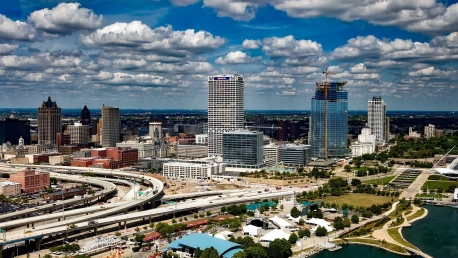As Milwaukee prepares to host the 2024 GOP National Convention, security is a top priority. With a large influx of visitors expected, city officials are working closely with federal and local agencies to establish comprehensive safety measures. These efforts are geared towards thwarting both physical and digital security threats, showcasing the city’s commitment to protecting attendees, residents, and infrastructure alike. Intense planning is underway as the city anticipates the national spotlight, ensuring that the convention is not only a landmark political event but also a testament to Milwaukee’s dedication to maintaining a secure and welcoming environment. This proactive approach underscores the significance of the event and the city’s readiness to manage the associated challenges effectively.
Unprecedented Security Partnership
In an unprecedented alliance, federal and local law enforcement are pooling their expertise to secure the upcoming RNC event. The extensive preparations are indicative of the commitment to make the 2024 convention a triumph of security planning. Central to these efforts is the U.S. Department of Homeland Security’s Cybersecurity and Infrastructure Security Agency. Their involvement signifies the weight of the potential threats and the resolve to tackle them head-on. Participation spans across various sectors, with each agency bringing their specialized knowledge to the table, weaving a safety net that covers the gamut of possible security challenges.The cooperative framework extends beyond governmental players. Private industry leaders, local businesses, and utility service providers are all integral to the discussions. Adhering to the adage that safety is a collective responsibility, these collaborations are a testament to the community’s resilience and readiness to host a large-scale national event, ensuring all contingencies are accounted for and event week proceeds without incident.
Cybersecurity at the Forefront
The rise in cyber threats has made cybersecurity a key focus for the RNC, with experts like Idaho National Lab’s Andy Bochman identifying risks that could upend the event and affect Milwaukee’s infrastructure. Cyberattacks on essential services such as power, gas, and water could severely disrupt both the convention and residents’ lives.Milwaukee has ramped up efforts to bolster its cyber defenses, particularly for its critical systems. Bochman points out that despite strong cybersecurity measures, the evolving nature of threats means absolute security is elusive. Thus, Milwaukee engages in consistent drills and provides utilities with extra support as part of a comprehensive cyber defense plan. This advanced level of readiness is essential to ensure the smooth running of the RNC and safeguard the local community’s welfare.
Establishing Security Perimeters
One can expect the downtown area to transform into a fortress of sorts, with well-defined perimeters demarcating zones of varying security levels. The ‘vehicular perimeter’ is designed to restrict vehicle access, ensuring a secure buffer around the convention’s hub. Inside this, a more stringent ‘credentialed perimeter’ will be enforced by the Secret Service, controlling access to only those who have been thoroughly vetted and approved.While the execution of such protocols is crucial for the event’s security, it will inevitably impact the daily flow of life within these perimeters. Traffic patterns will shift, and access to certain areas will be restricted, affecting both residents and business operators. Planning for this, agencies are working tirelessly to mitigate disruption and ensure that those within the perimeters are well informed and prepared for the temporary changes.
Mitigating Disruption for Residents and Businesses
The imposition of security perimeters, while necessary, is likely to disrupt daily routines for many. To address this, local authorities are conducting informational meetings to equip people within the designated zones with the knowledge they need to navigate the restrictions. Accessibility may be limited, and companies are being urged to consider telecommuting options for employees during the event week.The adaptive measures are an effort to remain cognizant of the community’s needs while balancing the demands of the convention’s security. The dialogues between the authorities and the affected will be crucial in smoothing out the inevitable wrinkles that come with hosting a national-level event. These tactical communication strategies are developed with a focus on minimizing discomfort while maintaining an uncompromised safety standard.
Preparing for the Influx of Visitors
Beyond the carefully drawn perimeters, the broader Milwaukee area will also feel the pulse of the convention. An influx of visitors means greater demands on the city’s transportation networks. Residents and guests alike are advised to anticipate heavier-than-usual traffic and are encouraged to plan their commutes accordingly, allotting extra time to reach their destinations.The convention week will see a greater volume of visitors moving through the city. Traffic management plans will be in effect, directing flows in a manner least disruptive to the normal operations of the city while ensuring the safety and timeliness of the RNC’s attendees. Public transport options and alternative routes are among the solutions likely to be recommended, aimed at facilitating movement amidst the heightened activity.









